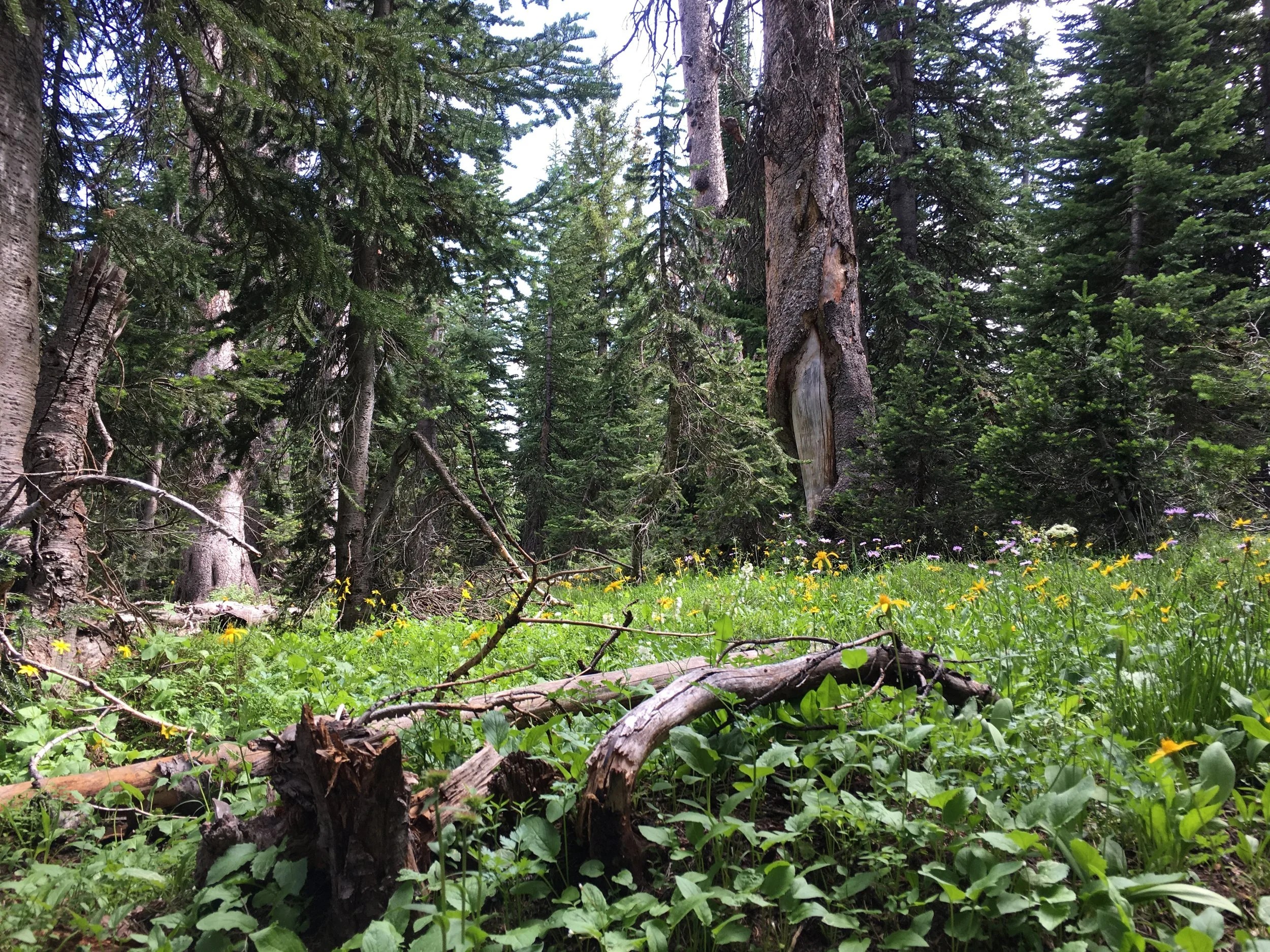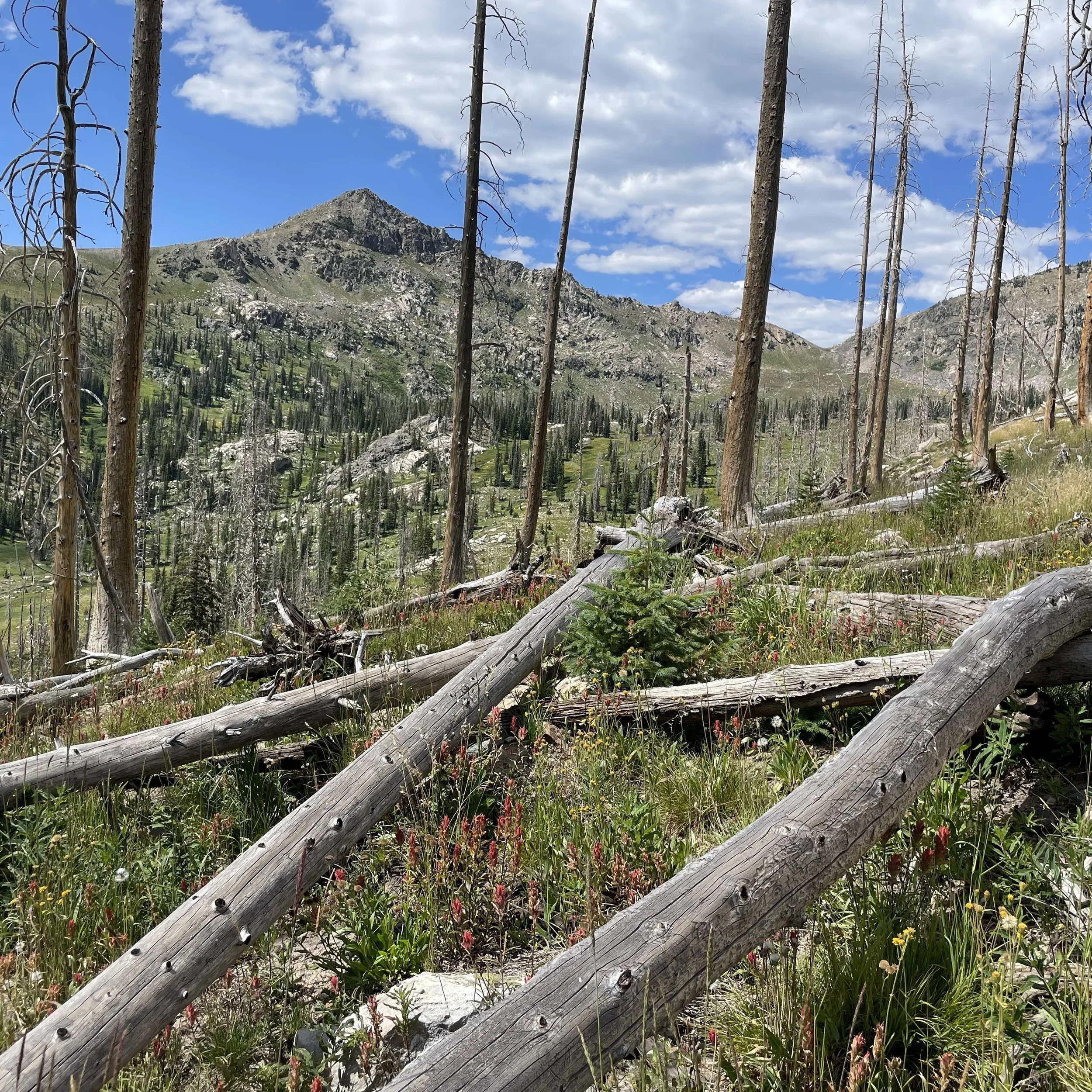
Current Research
ECOSYSTEM RESPONSE
Disturbances provide exceptional opportunities to understand how ecosystems respond to change. I primarily investigate the response of forested ecosystems to disturbance through the lens of plant community assembly theory. The understory plant community often responds to changes in resources (light, nutrients, etc.) as a result of disturbance (e.g., spruce beetle outbreaks, fires, or glaciers) much quicker than the overstory community. Understanding how both overstory and understory forest plant communities respond to disturbance betters our understanding of ecological theory, how (or if) the forest will regenerate, and how associated ecosystem services might be impacted. My research on ecosystem response takes place in multiple systems (southern Rocky Mountains & Glacier Bay National Park, AK) and utilizes plant functional traits to understand the potential mechanisms responsible for patterns observed across forested ecosystems.
CHANGING DISTURBANCE REGIMES
According to theory, the species present on the landscape should have functional traits reflective of the disturbance regimes that they evolved under, promoting a degree of resiliency. However, global climate change is altering the frequency, severity, and area of impact for many disturbance types creating novel disturbance conditions that threaten the resilience of forested ecosystems. For example, the effect of changing disturbance regimes may lead to disturbance events occurring in short intervals and interacting, creating conditions outside the range of historic variability. These novel disturbance regimes in turn may override the resilience mechanisms of species leading to alternative states such as type conversation (forest to non-forest) or changes in species composition (lodgepole dominance to quaking aspen dominance).
CONSERVATION AND MANAGEMENT IMPLICATIONS
It is important to me that my science contributes (at least in part) to boots on the ground land management. I primarily contribute to conversations related to land management through research on carbon conservation and fire management in forested ecosystem. Forested ecosystems are increasingly suggested as nature-based climate solutions but there is still large uncertainty on the carbon balances of many forested ecosystems, in part due to forest disturbance. Climate change is creating novel conditions that lead to large wildfires in forested ecosystems that jeopardize human lives, structures, in addition to ecosystem services such as carbon storage. My research focusses on regional scale modelling to understand the processes that drive biomass carbon storage and how plant communities in forests can interact with wildfire management goals.


